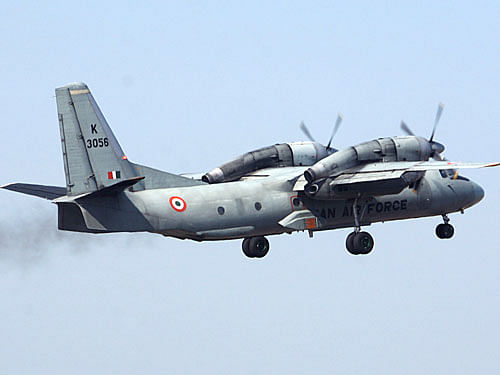
India has sought the help of the United States to locate the Indian Air Force’s AN-32 aircraft that disappeared a week ago, soon after taking-off towards Chennai.
The US defence department was contacted to check if any of their satellites picked up any emergency signals from the missing aircraft. The US satellite images were also sought.
“As there was no emergency signal from the AN-32, we sought the US defence force’s assistance to find out if their space-based assets picked up any signal,” Defence Minister Manohar Parrikar told the Rajya Sabha, responding to members’ queries. The absence of the ‘Mayday’ distress signal from the experienced pilots of the AN-32 — one of the safest IAF aircraft — remains the most puzzling factor in the
incident.
While two Indian Space Research Organisation (Isro) satellites, Cartosat 2A and 2B, are imaging the sea surface to find out clues on the debris of the aircraft and the passengers, satellite imageries from the US have also been sought.
“US satellite systems are more dense,” he said, underscoring the need to seek foreign help. Navy submarine INS Sindhudhvaj is also carrying out underwater search.
The minister virtually ruled out the possibility of a sabotage.
Two special ships with capability of searching below the water and retrieving objects from the depth of ocean were called in to join the search operations in the Bay of Bengal between Chennai and Port Blair. The first special ship is Geological Survey of India’s Samudra Ratnakar, which is sailing from Mangalore port, whereas the second one is National Institute of Ocean Technology’s ORV Sagar Nidhi, which was diverted from Mauritius. Both are expected to reach the search area in a day or two. On the AN-32’s emergency location transmitter (ELT) beacon, Parrikar said such beacons get activated only when they hit the water with a force of 20g. “The ELT was not activated when the Coast Guard plane (Dornier) crashed last year. We are checking how to further improve the (emergency) signalling in the aircraft,” he said.
Deccan Herald is on WhatsApp Channels| Join now for Breaking News & Editor's Picks